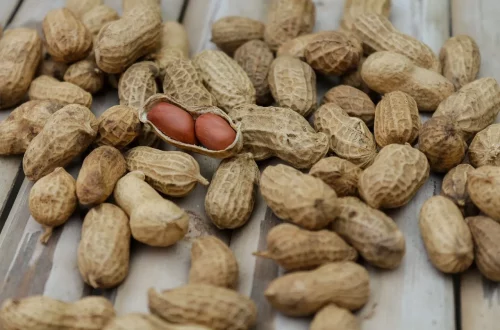
Flemish Rabbits for Sale: Your Guide to Finding the Perfect Pet
Flemish Rabbits are a breed that captures the hearts of many animal lovers with their impressive size, gentle demeanor, and striking appearance. Originating from Belgium, these rabbits were initially bred for their meat and fur, but they have since become cherished pets in households around the world. Their friendly nature and adaptability make them suitable for families, singles, and seniors alike. Whether you are looking for a playful companion or a calm presence in your home, Flemish Rabbits can provide a rewarding experience.
As potential pet owners explore the idea of adding a Flemish Rabbit to their family, it’s essential to understand the nuances of this breed. Their social needs, dietary requirements, and living conditions play a significant role in ensuring they thrive in a home environment. This gentle giant is not only a pet but also a lifelong commitment that requires love, care, and attention. Before making a decision, it’s crucial to consider various factors, including where to find Flemish Rabbits for sale, what to look for in a healthy rabbit, and how to provide the best environment for them to flourish.
Understanding Flemish Rabbit Characteristics
Flemish Rabbits are known for their majestic size, often weighing between 14 to 20 pounds. Their large frames and distinctive features, such as broad heads and long ears, make them stand out among other rabbit breeds. These rabbits come in various colors, including gray, black, and fawn, allowing potential owners to choose a pet that matches their aesthetic preferences.
In addition to their physical attributes, Flemish Rabbits possess a gentle and friendly temperament. They are social creatures that thrive on interaction, making them excellent companions for families and individuals alike. Unlike some smaller rabbit breeds that can be skittish or aloof, Flemish Rabbits tend to be more laid-back and affectionate towards their owners. This quality makes them ideal for households with children, as they are generally tolerant of handling and play.
However, it’s essential to remember that their size can also lead to specific care requirements. Due to their larger stature, Flemish Rabbits need ample space to move around and exercise. A spacious enclosure with room to hop and explore is crucial for their well-being. Additionally, they require a diet rich in hay, fresh vegetables, and high-quality pellets to meet their nutritional needs. Understanding these characteristics will help prospective owners prepare for the responsibilities of owning a Flemish Rabbit.
Where to Find Flemish Rabbits for Sale
When looking to add a Flemish Rabbit to your family, knowing where to find them is crucial. There are several avenues to explore, each with its advantages and considerations. One popular option is adopting from a local animal shelter or rescue organization. Many shelters have rabbits, including Flemish varieties, needing loving homes. Adoption not only gives a rabbit a second chance but also helps alleviate the overcrowding in shelters.
Another option is to purchase from reputable breeders. It’s essential to conduct thorough research when selecting a breeder, as this ensures you are getting a healthy and well-cared-for rabbit. Look for breeders who are members of established rabbit associations and who prioritize the health and well-being of their animals. Visiting the breeder’s facility can also provide insight into the living conditions of the rabbits.
Online platforms have also become a popular way to find Flemish Rabbits for sale. Websites dedicated to pet adoption and sales often have listings for available rabbits. However, it’s crucial to exercise caution when buying online. Ensure that the seller is reputable, and do not hesitate to ask questions regarding the rabbit’s health history and care. Whether adopting or purchasing, taking the time to find the right source is key to bringing home a happy and healthy Flemish Rabbit.
Preparing Your Home for a Flemish Rabbit
Before bringing a Flemish Rabbit home, it is essential to create a safe and comfortable environment. Start by selecting a suitable enclosure that provides enough space for your rabbit to move freely. A hutch or pen should be spacious enough to accommodate their size and allow them to stretch out comfortably. Make sure the enclosure is well-ventilated, secure, and free from drafts.
Inside the enclosure, provide bedding material that is safe and comfortable for your rabbit. Options such as straw or hay are ideal, as they are absorbent and provide a cozy resting area. Additionally, include hiding spots or tunnels where your rabbit can retreat and feel secure. This is crucial for their mental well-being, as rabbits are prey animals and benefit from having places to hide.
Diet is another critical aspect of preparing for your new pet. Flemish Rabbits require a diet high in fiber, primarily consisting of hay. Fresh vegetables and a limited amount of pellets will also help meet their nutritional needs. Ensure that fresh water is always available, as hydration is essential for their overall health.
Finally, consider the area surrounding the enclosure. Flemish Rabbits benefit from time outside their hutch for exercise and exploration. Rabbit-proofing your home by removing hazards, such as electrical cords or toxic plants, will help create a safe space for your rabbit to roam.
Caring for Your Flemish Rabbit
Once you have welcomed a Flemish Rabbit into your home, ongoing care is vital to ensure they lead happy and healthy lives. Regular health check-ups with a veterinarian who specializes in rabbits are essential. These visits can help catch any potential health issues early. Also, be attentive to signs of discomfort or illness, such as changes in eating habits or behavior.
Grooming is another important aspect of care. Flemish Rabbits have thick fur that requires regular brushing to prevent matting and reduce shedding. During shedding seasons, more frequent grooming may be necessary. Pay attention to their nails, which should be trimmed regularly to prevent overgrowth and discomfort.
Social interaction is crucial for Flemish Rabbits. Spend quality time with your rabbit daily, engaging in activities such as gentle play or simply sitting together. This bonding time helps build trust and strengthens your relationship. Additionally, consider providing toys or enrichment activities to keep your rabbit mentally stimulated. Chewing toys, tunnels, and foraging games can help keep their minds engaged and reduce boredom.
In conclusion, owning a Flemish Rabbit can be a delightful experience, but it comes with responsibilities. By understanding their needs and preparing properly, you can create a loving environment for your new pet. Remember, this article is not a substitute for veterinary advice. If you have health concerns regarding your rabbit, consult a veterinarian for professional guidance.




